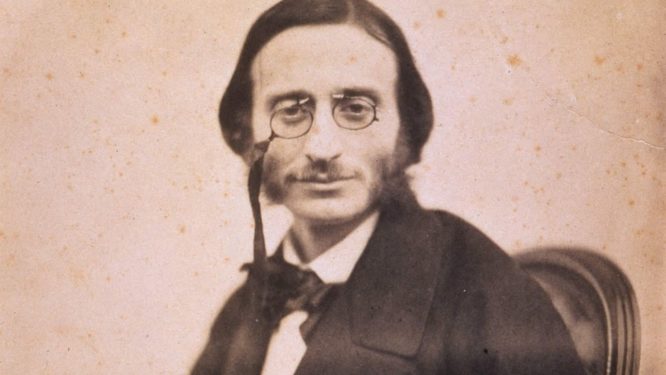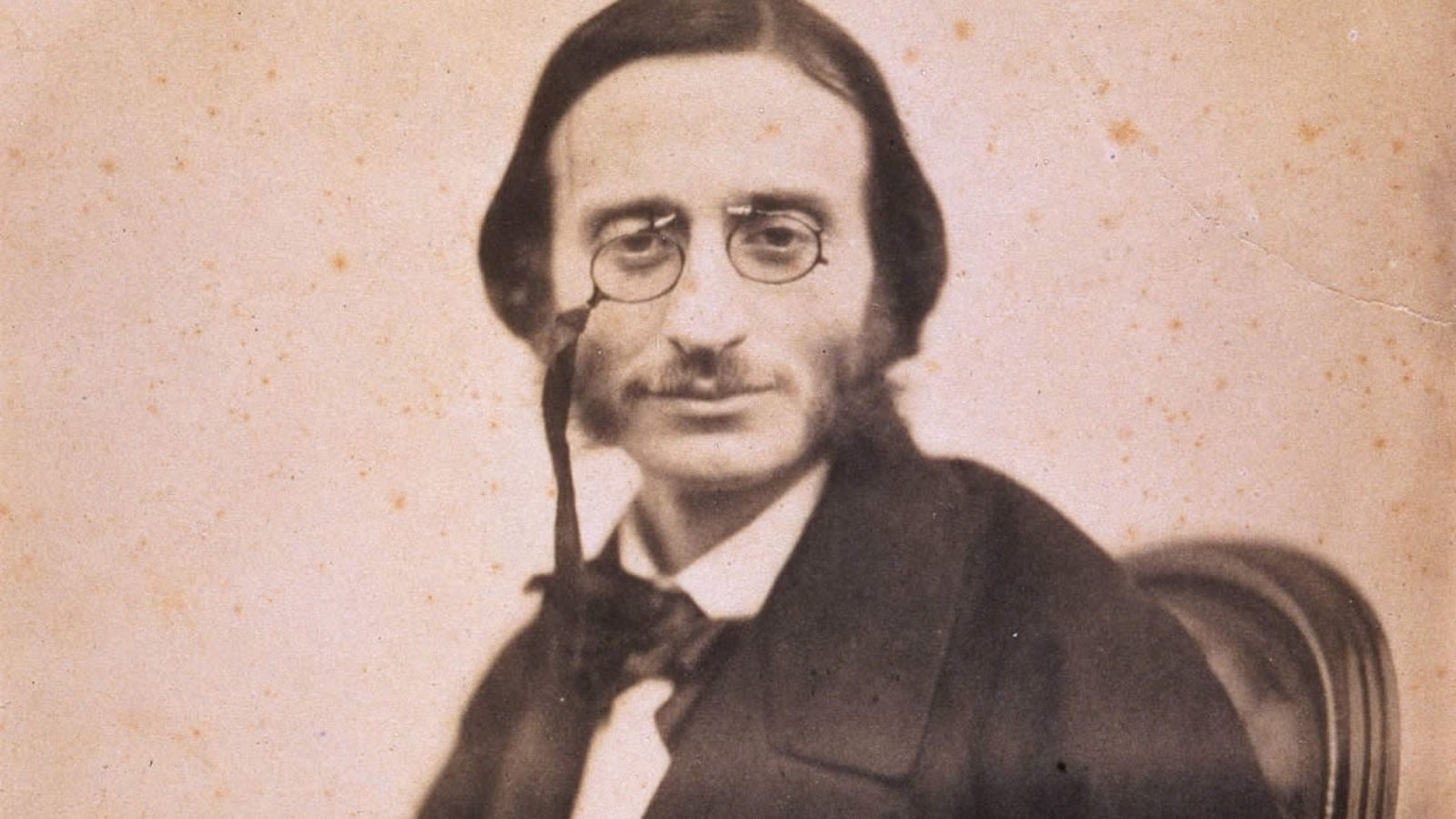Jacques Offenbach

DATES
Born Cologne, Germany on June 1819
Died Paris, France on October 5, 1880
NATIONALITY
French
STYLE/PERIOD
Romantic 1820-1910
FAMOUS WORKS
Orpheus in the Underworld

BIOGRAPHY
Offenbach was the son of a musician, author, and bookbinder who also served as cantor at a local synagogue. He was the seventh child in his family and took violin lessons from his father. The whole family was musical and in the evening often played chamber music together. Offenbach soon discovered that the cello was his favorite instrument and began to study with a local teacher. He began to compose music at age 6 and gave his first concert at age 12.
When he was 14, Offenbach was accepted at the Paris Conservatoire where he studied cello for a year and later became a cellist in the orchestra of the Opéra-Comique. One of his jobs was to do some music copying for a young composer by the name of Friedrich Flotow. The two became friends and wrote two books of cello pieces. Offenbach wrote the melodies and Friedrich wrote the piano part. They would often play their pieces in recital.
Offenbach wrote many songs, but for a time was able to make his living as a cello soloist and traveled to England where he played for Queen Victoria and Prince Albert. The queen presented him with a valuable diamond ring. So when he returned to Paris he did so as a well-off young musician who was finally able to devote himself to composing music full time.
During the Revolution, Offenbach returned to Cologne where he produced his one-act operetta, Marietta, in 1849. In 1850, he was appointed conductor of the Comédie Francaise, which gave him the opportunity to use his own musical pieces in productions. One piece, which became very famous, was Chanson de Forrtunio. Offenbach remained in this position for five years and gained experience in orchestrating works for the theater.
In 1855, he rented a tiny theater in the Champ-Elysées and produced Les Deux Aveugles. In December he moved to a different theater and continued to build his reputation as a composer and entertainer. He collaborated with up and coming writers such as Meilhac, Halévy, Nuitter and Scribe. Offenbach’s melodies were infectious and full of fun. He produced 3 to 7 productions each year, many of which went straight to London to be performed on stage there. His first big success came about in 1858 with a two-act version of Orphée aux Enfers (Orpheus in the Underworld) that poked fun at many of the more prominent figures of the day.
During his life, Offenbach visited London and Vienna many times as a guest conductor. He took a trip to America, but it was disastrous and the voyage nearly killed him. He died of gout of the heart in 1880 and never did see his Les Contes d’Hoffmann (Tales of Hoffman) in production.
Offenbach is known as the father of the operetta and his influence has spread everywhere. He lived in a world where Romantic music was very popular; much of his work remains unknown. He is still known for his overtures, a few songs from his famous operettas, and a very famous can-can!